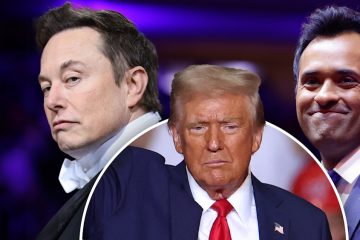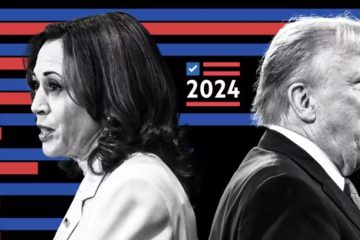The Election Over, U.K. Officials Stop Pretending Brexit Won’t Hurt

A funny thing happened in London Tuesday. The country’s finance chief, Philip Hammond, and the head of its central bank, Mark Carney, gave keynote speeches chiefly about Brexit – and neither of them had a good word to say about it.
Instead, Hammond revived a concept of Brexit that is anathema to much of his party and flatly contradicts what his boss Theresa May promised during the election campaign, and Carney was as snarky about Brexiteer-in-Chief Boris Johnson as it’s possible for a central banker to be about an elected politician.
The speeches, which came just a day after formal Brexit talks started in Brussels with an immediate British climbdown, illustrate how far the pendulum has swung in favor of a “softer” Brexit, one that concentrates on minimizing risks to the economy, rather than reasserting the U.K.’s freedom at any price.
Read: Theresa May’s Brexit Strategy Is In Tatters—And the EU Knows It
May, egged on by the right wing of her Conservative Party, had fought her disastrous election campaign on the platform that “no deal is better than a bad deal” when it came to Brexit. That meant that she was prepared to risk walking away from negotiations and leaving everyone from the U.K.’s farmers to its bankers and airlines in legal limbo on March 30, 2019, having lost their automatic right to sell their produce, market their services, or land their planes anywhere in the E.U.’s Single Market.
Hammond, who campaigned for Remain in last year’s referendum, had been near-invisible during the election campaign, clearly unable to endorse that kind of platform. But he’s been popping up everywhere since June 8, hammering home the notion (repeated this morning) that “when the British people voted last June, they did not vote to become poorer or less secure,” and arguing for transitional arrangements that will avoid, as he put it Tuesday, “unnecessary disruption and dangerous cliff edges.”
That’s music to the ears of American business, which is a big investor in the U.K. “A clear pledge to preserve market access after Brexit would give confidence to businesses of all sizes, and also bring benefits to consumers and to wider society,” AmCham EU CEO Susan Danger said in a statement Monday.
Read: Theresa May Called a Snap Election and the Election Snapped Back
The implicit gamble, for May and the Brexiteers, was that the EU, which runs a large trade surplus with the U.K., would be just as scared of “cliff-edge effects” in 2019, and allow the U.K. the same kind of market privileges even as it shuffles off its obligations – what Foreign Secretary Boris Johnson has referred to as “having our cake and eating it.” This idea has been constantly scorned by Germany’s Angela Merkel, France’s Emmanuel Macron and the EU officials responsible for guiding the negotiations. But on Tuesday, it was Carney’s turn.
” Before long, we will all begin to find out the extent to which Brexit is a gentle stroll along a smooth path to a land of cake and consumption,” Carney said in a clear swipe at the Foreign Secretary.
Johnson is already reported to be planning to oust May as Prime Minister in a party coup later this year (he denied the reports at great length, but memories of his revolt against David Cameron over Brexit last year are still fresh, and a number of Conservative-friendly outlets have run stories quoting unnamed Tories saying that David Davis, his biggest rival, is too old for the job).
Allie Renison, head of EU and Trade Policy at the Institute for Directors in London, said that while the endgame of a life outside the Single Market hasn’t changed, the new emphasis for an early agreement on transitional arrangements that would smooth the process was “positive.” She argued that firms need to know by next summer what the situation in 2019 is going to look like. Otherwise, they will start moving the vulnerable parts of their business out of the U.K.
“The challenge now is to convince the EU that these arrangements are as important as the final deal, and to work with business to develop what those should be,” Renison said.
Read: The New York Times Is Offering a $ 6,000 Brexit Apocalypse Tour of London
The EU has said it will only talk about future trading arrangements once “sufficient” progress has been made on settling the U.K.’s final accounts with the bloc. Given its commitments to the EU budget, pensions and other things, this has been reported as anything up to 100 billion euros (although the final net figure is likely to be much less, and spread over a long period). The U.K. had said before the opening round of divorce talks Monday that it wanted to negotiate future trading arrangements in parallel, but Davis, who is leading the U.K.’s negotiations in Brussels, appeared to fall in with the EU line at a joint press conference after the talks.





